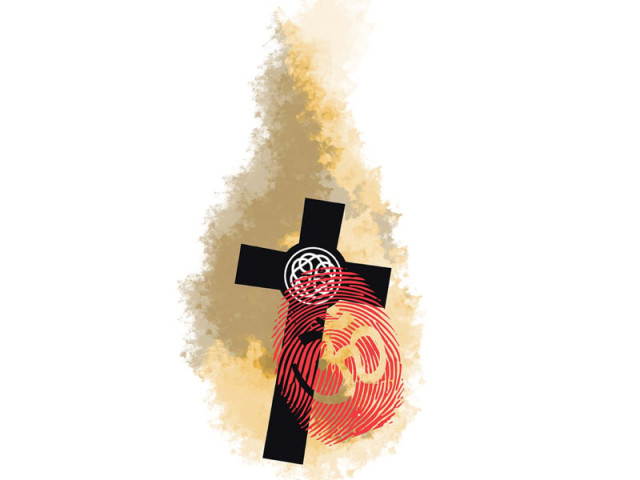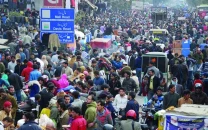A town learns to survive without its elders

He would have learnt the tricks of the trade by sitting at the shop in the evenings as his father and uncles conducted business. During the day, he would have continued with his education.
But having lost his father, uncle and a younger sister in the earthquake that killed 50,000 people in Balakot and virtually flattened the town, Farooq was forced to take on the mantle of breadwinner. Now he wishes he had spent a bit more time at the shop and picked up some helpful pointers.
“We sometimes incur losses because there is no one to guide us,” the 19-year-old says.
“I was only 17 when I was given charge of this shop. My father and uncle used to run this business and they would often invite me to sit with them in the evenings so I could be trained at a young age, but I often avoided doing so.”
Five years after the earthquake, Balakot in Mansehra district is breathing again. With the help of the United Arab Emirates and Saudi Arabia, houses and shops have been reconstructed. The bazaars, cafes and gas stations that were razed to the ground are back in business; however, not all who inherited their family’s businesses much before they had expected to, have been able to make a success of them. Most blame lack of mentoring.
“There is not a single family here that did not lose several of its members,” says Muhammad Nazeer, who has taken over his family business of selling pottery but is unable to run it properly in the absence of his father. “He was crushed to death as all the shops in this market collapsed … with his death I lost my mentor.”
Others, however, are looking beyond their town and their family businesses for profit. An example is the enterprising 14-year-old Khizar, who, along with his younger cousins, temporarily migrates to Lalazar, a hill station in the nearby Kaghan Valley, to earn extra cash during summers when tourists flock to the area in large numbers.
“My father was one of the few lucky people who survived because he was not in town that morning. He returned from Islamabad the following day and found out that he had lost most of his friends and colleagues,” says Khizar.
Once the shops were rebuilt in 2007, Khizar’s father decided to sell his property in Balakot and moved to a nearby town. “He then suggested that my cousins and I take up part-time jobs at these tourist destinations during our summer breaks and support the family ... so here we are, making more money than our fathers,” he chuckles.
Salaries of these young ‘assistants’ at cafeterias around the Saiful Muluk Lake and Lalazar in Kaghan range between Rs4,000 and Rs5,000 per month for four months (May to August). “This is excluding the tip,” says Khizar, who smiles coyly when inquired about the total amount he makes. “The money can last the entire year if I spend it wisely,” is all the young man reveals.
Owners of various cafés in the area attest that the job of an assistant attracts many young men from Balakot during the tourist season as the work requires no training. As travelling is restricted during the monsoon and winters, young men want to make the best of this time.
“Kaghan is visited by hundreds of families daily. Even if each family gives these boys Rs20 as a tip, I am pretty sure they take home at least Rs2,000 every day,” claims one owner.
Life may be tough in Balakot after the earthquake, but people need to learn to survive even if that requires them to explore job options in other towns, notes Arshad Abbas, a tourist guide.
“This is one option I don’t have because I want to stay here in Balakot and keep my father’s business alive. And I will,” says Nazeer. “I just need a bit more time to learn.”
Published in The Express Tribune, July 17th, 2010.



















COMMENTS
Comments are moderated and generally will be posted if they are on-topic and not abusive.
For more information, please see our Comments FAQ